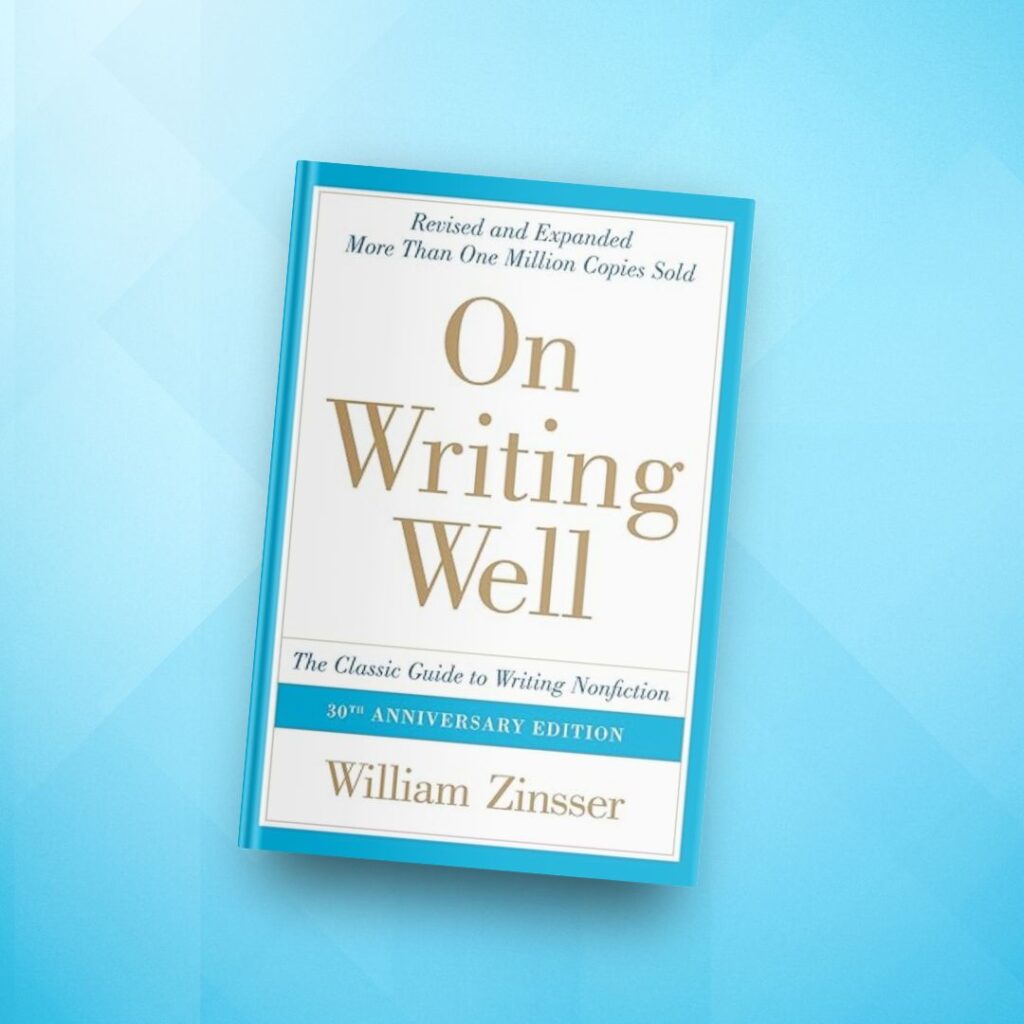Table of Contents
- Introduction
- 1. Understanding Writing Quality
- 2. Why Writing Quality Matters
- 3. Proven Methods for Improving Writing Quality
- 4. Tools and Resources for Improving Writing Quality
- 5. Practicing and Applying the Proven Methods
- 6. Common Mistakes in Writing
- 7. Cultivating Your Writing Style
- Conclusion
Introduction
Improving your writing quality can feel overwhelming, but it is a crucial investment that will change your life and career. Whether you are a student working on academic papers, a professional crafting business communications, or an individual connecting with friends and family, the quality of your writing impacts how effectively you convey ideas and information.
Enhancing your writing quality can improve clarity, increase credibility, and have greater influence over readers. This write-up will provide proven methods to take your writing to the next level.
We will begin by defining “good writing quality” and why it matters to achieve your communication goals. Then, we will explore actionable techniques to strengthen the fundamental components of high-quality writing: grammar, sentence structure, organization, word choice, and more.
From leveraging online tools to seeking feedback, you will learn tangible strategies to proofread, refine, and elevate your writing. With consistent practice and application of these methods, you can gain confidence in your abilities and watch your writing quality steadily improve.
The skills you develop will serve you for years, whether crafting an academic paper, sending a professional email, or publishing a personal blog. Let’s get started.
The Importance of Writing Quality
Writing is a critical form of communication across all aspects of life, including in school, scholarly writing, and professional work.
In school, the quality of your writing directly impacts your grades and how effectively you convey your knowledge. Professionally, employers and colleagues judge your skills and expertise based on the clarity and professionalism of your writing. Quality scholarly writing will allow you to publish in reputable journals. And even in personal contexts, your writing reflects on you and shapes how others perceive you.
How Improving Your Writing Quality Will Help
Strengthening your writing skills leads to tangible benefits. Precise, cohesive writing makes your points more transparent and understandable to readers. Proper spelling and grammar establish credibility and professionalism.
Thoughtful organization and vocabulary choice allow you to craft compelling arguments that influence and motivate your audience. Great writing grabs attention, builds trust, and lets you share ideas powerfully.
This article will provide research-backed techniques to improve writing quality. We will cover methods to refine grammar and punctuation, write cohesive paragraphs, choose precise vocabulary, seek valuable feedback, leverage editing tools, and more. With consistent practice, these proven tactics will sharpen your skills and elevate the impact of your writing.
1. Understanding Writing Quality
Writing quality encompasses various elements that contribute to how effectively ideas are communicated. At its core, quality writing is clear, coherent, and logically structured. Some key components that determine writing quality include:
Grammar and Mechanics
Proper grammar usage and mechanics (spelling, punctuation, capitalization) are foundational to quality writing. Mistakes in these areas can undermine the writer’s credibility and make the writing difficult to understand.
Sentence Structure
Well-constructed sentences with proper syntax make text flow smoothly. Varied sentence lengths and structures engage readers, while unclear, disjointed sentences frustrate them.
Organization and Transitions
Logical organization aided by transitional words/phrases between paragraphs and ideas improves flow and readability. Disorganized writing without transitions can be confusing.
Word Choice and Tone
Precise, concise wording and an appropriate tone for the context and audience make writing more powerful. Verbose, vague language dilutes the message.
Coherence and Unity
Ideas that logically build upon each other with smooth transitions between paragraphs create coherence. Lack of connection between ideas diminishes unity.
By mastering these elements, writers can significantly improve their work. Common grammar errors, fuzzy language, poor organization, and lack of cohesion detract from quality. Awareness of these components empowers writers to elevate their craft.
2. Why Writing Quality Matters
Clear and effective writing is essential for conveying ideas and building credibility. When done well, writing can inform, inspire, and motivate readers. However, poor writing quality can have the opposite effect by obscuring meaning, undermining expertise, and disengaging audiences.
The Role of Writing Quality in Communication
Writing quality directly impacts how well ideas and messages are communicated. Proper grammar, logical structure, and precise word choice make text comprehensible. Well-written content also helps hold the reader’s attention and interest. Conversely, writing with frequent errors, disorganization, and unclear language is a communication barrier.
High-quality writing demonstrates respect for readers by valuing their time and making content accessible. It enables writers to connect with audiences and transmit information effectively.
Writing Quality Influences Perceived Credibility and Professionalism
A writer’s expertise and professionalism are often judged based on their writing. Text containing errors and unclear passages negatively affects the writer’s credibility. Readers may dismiss their ideas as uninformed or careless.
Excellent writing quality conveys knowledge and attention to detail. It demonstrates the writer’s competence and ability to communicate complex ideas. Establishing credibility is key for writers seeking to inform or persuade readers.
Consequences of Poor Writing Quality
Poor writing has tangible consequences across different contexts. In professional settings, it can limit career advancement and damage reputations. For businesses, unclear writing jeopardizes relationships with customers and partners. In academic writing, it can mean lower grades.
Most importantly, inferior writing fails to achieve its purpose. Whether it is to educate, argue, entertain, or inspire, poor writing quality dilutes the intended impact. It also wastes readers’ time trying to decode garbled text.
High-quality writing ensures messages are received and understood by making content easy to digest. It enables writers to build trust and effectively convey ideas to readers.
3. Proven Methods for Improving Writing Quality
Grammar and Punctuation
Developing a strong foundation in grammar and punctuation is one of the most fundamental ways to enhance writing quality. Learning proper grammar rules around sentence structure, subject-verb agreement, pronoun usage, and more can help minimize errors and confusion for readers.
Regularly reviewing punctuation guidelines on proper comma, semicolon, and apostrophe use also sharpens writing. Taking the time to master grammar and punctuation establishes a baseline of clarity and precision in writing.
Sentence Structure
In addition to grammar, focusing on sentence structure and organization through transitions and logical flow improves coherence. Linking sentences and paragraphs with transitional phrases (e.g., furthermore, in addition, consequently) makes relationships clearer.
Organizing writing in a logical sequence using chronology or cause-and-effect also boosts flow. Varying sentence structure with simple, compound, and complex sentences prevents monotony. These structural techniques promote smooth reading comprehension.
Language and Word Choice
Concise, precise language choices are another critical strategy for better writing quality. Eliminating excessive words, choosing specific verbs, and avoiding vague language concentrates meaning. Precise word choice also reduces ambiguity and enhances clarity.
For example, using words like “sprint” versus “run fast” or “contemplate” rather than “think about” makes writing more vivid. Pruning extraneous words tightens sentences and directs focus to key ideas.
Mastering grammar, improving sentence structure and organization, and writing concisely and precisely are proven methods of elevating writing quality. Developing these core skills establishes a foundation for clear, coherent, and impactful writing across contexts and disciplines.
4. Tools and Resources for Improving Writing Quality
Many useful tools and resources are available to help writers improve the quality of their writing.
Online grammar and style checkers like Grammarly and Hemingway Editor can assist with proofreading and catching errors in spelling, grammar, punctuation, and word choice. These automated checkers provide instant feedback and suggestions to correct issues in writing. While not foolproof, they serve as a helpful defense against mistakes.
In addition to online tools, many excellent books and guides offer effective techniques for enhancing writing skills. The classic Elements of Style by Strunk and White explains fundamental rules of grammar and composition in a clear, concise way.

More extensive style manuals like the Chicago Manual of Style provide comprehensive guidelines on formatting, citation, and language usage for different contexts.
For writers looking to take their skills to an advanced level, in-depth resources like On Writing Well by William Zinsser offer invaluable advice on style, voice, and mastering the craft of writing.

Workbooks with targeted exercises, like The Only Grammar Book You’ll Ever Need, can provide practice to strengthen specific skills.

The Benefits of Seeking Feedback
While tools and reference guides are helpful, one of the best ways for writers to improve is by soliciting feedback from others. Sharing drafts with peers, mentors, or professional editors allows writers to identify blind spots and get an outside perspective on areas needing improvement. Feedback helps writers pinpoint weaknesses in their writing and focus their efforts on the highest-impact areas.
Constructive critiques on structure, flow, clarity, concision, and overall impact can reveal opportunities for refinement. Having others review writing samples also builds self-awareness and motivates writers to continue honing their craft. With practice and feedback, writers can continually upgrade the quality of their work.
5. Practicing and Applying the Proven Methods
Regular practice is essential for developing quality writing skills and genuinely mastering the techniques discussed in this write-up. Like any other skill, writing requires repetition and focused effort to improve. Here are some tips for making writing practice a consistent habit:
Set Aside Time Specifically for Writing
Dedicate a block of time each day, even if just 15-30 minutes, solely to writing practice. This will help build a routine and prevent writing from falling by the wayside amidst your other responsibilities. Try scheduling it at the same time daily to make the habit stick.
Vary Your Writing Exercises
Practice different forms of writing like journaling, crafting emails, composing social media posts, taking meeting notes, or summarizing articles. This exposes you to diverse contexts and styles. It also prevents boredom from doing the same type of writing every day.
Incorporate the Proven Methods
When practicing, intentionally use the techniques covered in this blog, such as strong grammar, precise language, logical flow, and smooth transitions. This cements them as habits over time. Also, get in the routine of running your writing through spelling/grammar checkers and seeking feedback.
Set Goals and Track Progress
Define specific, measurable goals, such as “use active voice in 80% of sentences” or “limit paragraphs to 3-5 sentences.” Use tools like the Flesch Reading Ease score to benchmark and monitor improvements. Celebrate successes along the way.
Learn From Real-World Examples
Study high-quality writing you encounter, such as magazine articles, published books, and reputable websites. Take notes on what makes the writing compelling. Seek permission to rewrite portions yourself, applying the proven methods.
Practice Under Time Constraints
Challenge yourself to produce quality writing under time pressure. This builds fluency for when quick turnarounds are required professionally. Start with short periods and gradually increase to simulate real-world scenarios.
With consistent, focused practice using these tips, the proven writing methods from this blog will become second nature. You’ll notice steady improvements in the clarity, precision, structure, and overall quality of your writing. Don’t get discouraged if progress feels slow initially – persist and be proud of each small step forward.
6. Common Mistakes in Writing
Even the most experienced writers can fall into common pitfalls that hinder their writing quality. Recognizing and avoiding these mistakes is key to improving your writing quality. In addition to spelling and grammar errors, here are some common mistakes to watch out for:
Run-On Sentences and Fragments
Long, convoluted sentences can be confusing and difficult to follow. Sentence fragments, which are incomplete sentences, can also confuse readers. Aim to balance short and long sentences to maintain reader interest and comprehension.
Overuse of Passive Voice
While the passive voice has its place, overusing it can make your writing seem weak or uncertain. The active voice is generally more direct and engaging.
For example, instead of “The ball was thrown by John,” write, “John threw the ball.”
Poorly Organized Thoughts
A lack of clear organization can make it difficult for readers to follow your thoughts. Ensure each paragraph has a clear main idea, and use transitions to guide readers from one idea to the next.
Inconsistent Tense Usage
Switching tenses in the middle of a piece can confuse readers. If you start writing in past tense, stick with it throughout the piece unless there’s a good reason to change.
Wordiness
Using more words than necessary can make reading your writing unclear and tedious. Be concise and to the point. For example, instead of writing “due to the fact that,” write “because.”
Vague Language
Specificity adds clarity and interest to your writing. Instead of writing “a lot of people,” specify whether you mean “dozens of people,” “hundreds of people,” or “millions of people.”
Ignoring the Audience
Always consider your audience when writing. The language, tone, and level of formality should be appropriate for the intended readers.
Overuse of Jargon or Complex Language
While precise language is essential, overusing jargon or unnecessarily complex words can alienate readers. Use clear, straightforward language whenever possible.
Lack of Editing and Proofreading
Even if you’re confident in your writing skills, always take the time to put your work through editing and proofreading. You might catch errors or inconsistencies that you missed on the first pass.
By being aware of these common mistakes, you can take steps to avoid them and improve the overall quality of your writing.
7. Cultivating Your Writing Style
Cultivating your writing style is a critical step in improving your writing quality. Your style reflects your unique voice and personality, making your writing more engaging and memorable. It’s how you express yourself through words, your choice of vocabulary, sentence structure, and tone. Here’s why developing your writing style is essential:
Authenticity
When you develop your writing style, it brings authenticity to your work. Readers can sense when a writer is genuine, which builds trust and rapport. Authenticity makes your writing more relatable and can strengthen your connection with your audience.

Consistency
A consistent writing style helps maintain coherence throughout your work. This consistency helps readers follow your thoughts more easily, enhancing their understanding and enjoyment of your writing.
Differentiation
Your writing style sets you apart from other writers. In a world saturated with content, having a distinctive style can make your work stand out and be more memorable to readers.
Engagement
A unique writing style can captivate your audience and keep them engaged. It can add depth and richness to your writing, making reading more enjoyable.
Reflection of Identity
Your writing style is a reflection of who you are. It allows you to express your perspectives, values, and personality. This self-expression can make writing a more fulfilling process.
To cultivate your writing style, read widely to expose yourself to different styles. Take note of what resonates with you and what doesn’t. Experiment with various techniques and tones in your writing. Seek feedback from others and continually refine your style based on this input. Remember, your writing style will evolve as you grow and gain more experience as a writer.
Cultivating your writing style is a vital aspect of improving your writing quality. It adds uniqueness and authenticity to your work, enhances engagement with your audience, and allows for consistent, expressive communication.
Conclusion
Improving your writing quality is an ongoing journey that requires consistent practice, feedback, and refinement. It begins with mastering the fundamentals of grammar, sentence structure, and word choice, then expands to cultivating your unique writing style.
Leveraging various tools, resources, and techniques can continually elevate your writing skills. Whether you’re a student, professional, or someone who wants to express ideas more effectively, improving your writing quality can profoundly impact your communication effectiveness and credibility.
Remember, every step forward, no matter how small, contributes to your growth as a writer. Embrace the process, celebrate your progress, and strive for excellence in your writing. Your words can inform, inspire, and influence—make them count.

